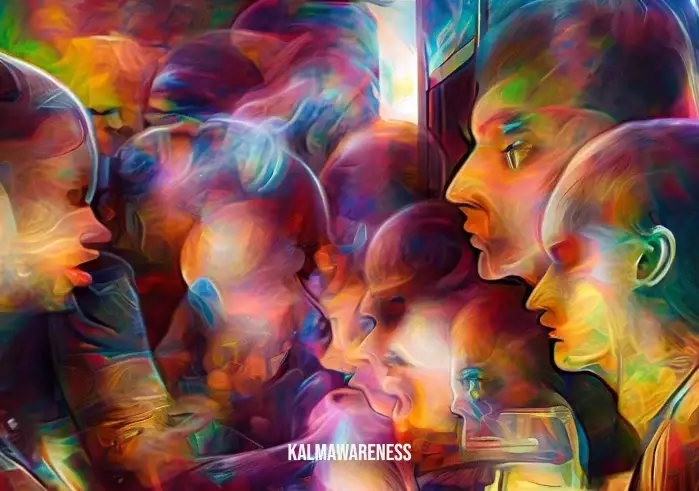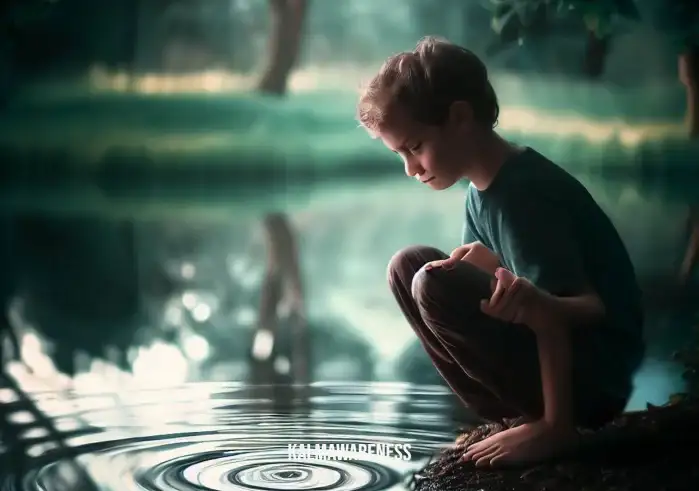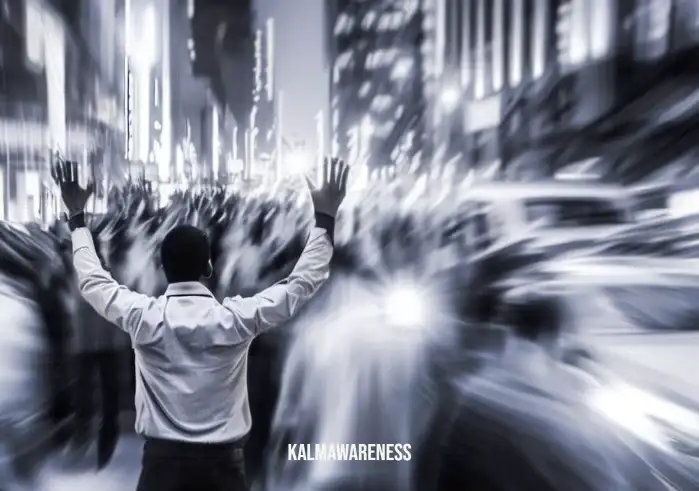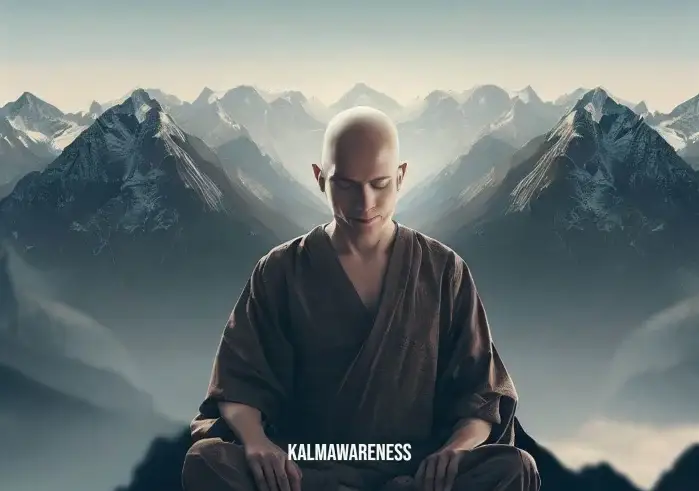Eyes Reflection: A Portal to Self-perception, Introspection, and Personal Growth
As humans, we possess a unique tool that facilitates introspection, self-perception, and personal growth — our eyes. When we gaze into a mirror, the eyes reflection manifests as a complex interplay of light and surface, providing a window into our soul. But what does this reflection truly reveal about us?
Reflective Introspection: The Person in the Mirror
Whenever you look at your reflection, who is it that you truly see? Is it the physical you or a symbolic representation of your inner self? Many of us, when faced with our reflection, might find ourselves challenged to confront the myriad complexities of our personality.
Reflective introspection, gazing upon your own eyes in a mirror, serves as an introspective activity that encourages us to see beyond the surface. Sometimes, this can lead us to confront aspects of our personalities we’d rather avoid, where we see an image of ourselves that feels unfamiliar.
“When you gaze long into an abyss, the abyss also gazes into you.” — Friedrich Nietzsche
Our reflections are not merely physical images. They are cognitive constructs that can provide invaluable insights into our minds and souls, allowing us to peel back the layers of our own consciousness.
The Paradox of Self-perception
As complex beings, our perception of ourselves is intrinsically tied to how we perceive the world around us. Our actions are indeed a reflection of our beliefs, values, and experiences. However, the paradox lies in the fact that the image we see in the mirror might not always align with how we perceive ourselves internally.
You might have asked yourself at some point, “Do I look like what I see in the mirror?” In reality, our self-perception is shaped by many factors — our thoughts, beliefs, experiences, and the feedback we receive from others. This multifaceted nature of self-perception makes it a deeply personal and subjective experience.
Mirroring Inner Thoughts
Often, the answers to our deepest questions can be found within ourselves. A simple yet profound activity that can facilitate this introspective journey is mirror gazing. This practice can lead us to confront our true selves, sparking an internal conversation and leading to valuable insights about our true nature.
“Gazing into the mirror, we don’t just see a face. We witness the reflection of our mind in our expressions.” — Anonymous
While it might be a challenge at first, reflecting upon your own image can open the doorway to greater self-understanding. The process can be as simple as asking yourself mindful questions like “What do you see when you look in the mirror?”
I invite you to continue to the next part of this insightful exploration of ‘eyes reflection’. In the upcoming section, we’ll delve deeper into the spiritual aspect of eyes reflection, the concept of the ‘third eye’, and its significance in personal growth and self-awareness.

Eyes Reflection and Spirituality: The Gateway to our Inner Universe
Our eyes, often referred to as the windows to the soul, hold a deep spiritual significance. They are more than just biological instruments for vision – they are powerful symbols in spiritual traditions worldwide. Let’s explore how the eyes reflection, especially in the context of mirror meditation, can offer unique perspectives about our inner selves and overall spiritual growth.
Mirror Meditation: Reflecting on the Inner Self
Mirror meditation, a lesser-known yet potent practice, invites us to look beyond our physical reflection, tapping into our deeper consciousness. Our eyes reflection during mirror meditation offers a transcendental experience, bringing forth aspects of our character that are often suppressed or ignored.
In mirror meditation, the objective is not to focus on our physical attributes but to surpass them. Staring into your own eyes reflection for an extended period, you’ll start to experience a unique form of introspection.
“Mirror meditation reflects the self, showing you facets of your being that transcend physicality.”
Let’s delve into a simple step-by-step guide for a basic mirror meditation session:
- Position: Find a calm, dimly lit room where you won’t be disturbed. Sit in front of a mirror at a comfortable distance, allowing your full face to reflect.
- Focus: Set your gaze on your eyes reflection. As you stare, you’ll find your external focus gradually shifting inwards.
- Observe: During the process, myriad thoughts and feelings might emerge. Acknowledge them without judgment.
- Understand: With regular practice, you’ll begin to see past your physical reflection, gaining insight into your observer self.
The Third Eye: Reflection of Higher Consciousness
In various spiritual traditions, the concept of the ‘third eye’ plays a crucial role. Often, the third eye is associated with spiritual awakening, intuition, and a heightened state of awareness. The reflection of our third eye in a mirror is believed to give us glimpses of our inner truth and deeper consciousness.
To aid in your understanding, consider the table below which outlines key distinctions between the ‘physical eyes’ and the ‘third eye’.
| Physical Eyes | Third Eye | |
|---|---|---|
| Purpose | Enable us to perceive the physical world around us | Offers a vision of inner realms and spaces of higher consciousness |
| Reflection | Offers a tangible, physical reflection | Provides a metaphysical reflection of self-awareness, spiritual insight |
| Connection | Connected to the external world | Deeply tied to our internal thoughts, feelings, and intuition |
| Limitations | Limited to physical reality | Transcends physical limitations, enabling inner exploration |
| Utilization | Used consciously in everyday life | Needs mindfulness and meditation to tap into its potential |
Reflections on Personal Growth
The journey of personal growth is intrinsically tied to how well we know ourselves. Mirror gazing and understanding our eyes reflection helps us connect with our person with a great love for mirrors, allowing us to see our strengths, areas for improvement, and uncharted aspects of our personality.
Moreover, eyes reflection can also serve as a tool for self-reflecting our progress. By regularly confronting ourselves in the mirror, we can track the changes in our thoughts, emotions, and overall state of being.
Continue to the next part of this deep dive into ‘eyes reflection’, where we’ll discuss the psychological dimensions of eyes reflection, how it influences our self-perception, and its role in cultivating a positive self-image. Remember, each glimpse in the mirror is a step towards self-awareness, and each reflection is an invitation to personal growth.

Unraveling Our Self-Perception: The Power of Eyes Reflection
Beyond their biological function, our eyes are crucial instruments in forming self-perception, personal identity, and interpersonal relationships. The act of observing our eyes reflection can shed light on how we see ourselves, influencing our self-esteem and overall mental well-being.
Mirror Image: A Key to Self-Perception
Our reflection in the mirror forms the basis of our physical self-perception. When we look at our eyes reflection, we’re not just observing a pair of physical organs, we’re also delving into an integral part of our identity. The famous psychologist, Carl Jung, once said, “Who looks outside, dreams; who looks inside, awakes.” Looking into our eyes reflection is akin to looking within, awakening a profound understanding of ourselves.
Interestingly, our self-perception doesn’t always align with how others perceive us. Have you ever wondered, do we look like what we see in the mirror? While the mirror provides an objective image, our self-perception is highly subjective, influenced by our emotions, thoughts, and experiences.
The Impact of Eyes Reflection on Self-Esteem
Our self-esteem is closely linked with our perception of our eyes reflection. People who feel comfortable looking at themselves in the mirror, making direct eye contact with their reflection, often exhibit higher self-esteem. On the other hand, those who can’t look at themselves in the mirror might be struggling with low self-esteem or self-critical thoughts.
In this context, Oscar Wilde’s statement, “To love oneself is the beginning of a lifelong romance,” rings true. Our eyes reflection can be a powerful tool to foster self-love and acceptance, marking the start of a healthier relationship with ourselves.
The Mirror: A Tool for Positive Affirmation
Mirrors can be powerful tools for cultivating positive self-perception and reinforcing positive affirmations. Writing positive messages or goals on your mirror using markers that will come off can serve as a daily reminder of your worth and ambitions.
Looking into your eyes reflection while repeating these affirmations can strengthen their impact. As Louise Hay, a motivational author, said, “Mirror work is the most effective method I’ve found for learning to love yourself and see the world as a safe and loving place.”
Eyes Reflection: A Compass for Personal Growth
Our eyes reflection can serve as a compass guiding our personal growth. When you look in the mirror, what do you see? More than just physical attributes, your reflection can reveal your emotional state, thought patterns, and areas requiring attention or improvement.
Continue to the next part of our exploration of ‘eyes reflection’, where we’ll discuss its role in interpersonal relationships and social interactions. The mirror is more than a reflective surface; it’s a path to introspection, personal development, and a healthier, happier life.

Delving Deeper: Eyes Reflection and Interpersonal Relationships
Moving beyond self-perception and personal growth, let’s explore another fascinating aspect of our journey with eyes reflection: its role in interpersonal relationships and social interactions. Looking into someone’s eyes, whether it’s your own reflection or another person’s, can lead to powerful insights and deep connections.
Eyes Reflection: Window to the Soul
Eyes are often referred to as the ‘windows to the soul.’ This metaphor highlights how much we can perceive about another person by looking into their eyes. They can reveal emotions, intentions, and even character traits. Hence, our ability to read these signals can greatly enhance our insight and improve our interpersonal relationships.
Eyes Reflection and Empathy
Looking into another person’s eyes can stir feelings of empathy, as we gain a glimpse into their emotional state. This can foster understanding and compassion, key components of healthy relationships. In the words of philosopher Thich Nhat Hanh, “Looking deeply, we see the nature of interbeing, the nature of no self. We see that we are in everything and everything is in us.”
The Magic of Eyes Reflection in Romantic Relationships
There’s a certain magic in looking into the eyes of someone you love. The person with a great love for mirrors might find the gaze of a loved one even more compelling than their own reflection. When we fall in love, the eyes reflection of our partner becomes a reflection of our feelings and hopes.
Connecting Deeper Through Eyes Reflection
| Interaction Type | Emotion Conveyed | Benefit of Eyes Reflection |
|---|---|---|
| Deep Conversation | Understanding | Enhanced emotional connection |
| Conflict Resolution | Empathy | Better understanding of the other’s perspective |
| Expression of Love | Affection | Increased intimacy |
| Silent Companionship | Peacefulness | Strengthened bond |
| Joyful Moments | Happiness | Shared joy and increased positivity |
Eyes Reflection in Professional Relationships
In a professional context, effective communication is vital. Maintaining eye contact during conversations, presentations, or meetings can project confidence and credibility. As business magnate Richard Branson once said, “Don’t forget the importance of eye contact – it’s as important in business as it is in life.”
Eyes Reflection: An Avenue for Healing
Looking into someone’s eyes can also facilitate healing and personal growth. Eye gazing, a form of mirror meditation, can offer significant spiritual benefits, helping individuals overcome fear, anxiety, and other emotional challenges. In this regard, the Dalai Lama’s words echo powerfully: “Healing depends on openness to change.”
As we continue our journey exploring the depth and breadth of ‘eyes reflection’, the next part will delve into the psychological and cultural aspects associated with it. Join us as we illuminate the path of understanding, reflection, and connection that our eyes can provide. Let’s delve deeper into this path of awareness and personal growth.

Eyes Reflection: A Psychological and Cultural Exploration
The Psychology of Eyes Reflection
In our journey into the realm of eyes reflection, we now venture into the psychological aspects of this fascinating phenomenon. We’ll explore the science behind the emotional impact of eye contact, its role in our perception of self and others, and how it influences our behaviour and relationships.
The Intensity of Eye Contact
One of the first things we might notice when looking into the mirror is our own gaze staring back at us. This eyes reflection can evoke intense emotions and even make us feel somewhat uncomfortable. This discomfort may be linked to the phenomenon of not recognizing oneself in the mirror, a feeling that can sometimes be experienced even without a mirror, during deep introspection or meditation.
Reflections of the Inner Self
Confronting our eyes reflection can lead us to peel back the layers of our personality, revealing insights about our inner self. This experience can be disconcerting for some, as it brings into sharp focus the aspects of ourselves that we might usually choose to ignore or suppress.
Cultural Significance of Eyes Reflection
The eyes reflection holds a profound cultural and symbolic significance in various traditions around the world.
Eyes Reflection in Eastern Cultures
In many Eastern cultures, eyes are considered the gateway to a person’s spirit. There’s a belief that looking into a person’s eyes can reveal their innermost thoughts and emotions. The practice of mirror gazing or ‘Shivnetra’ is a spiritual exercise in 3rd eye mirror meditation, believed to enhance self-awareness and spiritual connectivity.
Eyes Reflection in Western Culture
In Western cultures, eyes reflection holds a significant place in various realms of art and literature. Often used as a metaphor for self-awareness and introspection, it also signifies truth, clarity, and enlightenment. The adage “the eyes are the mirror of the soul” emphasizes the belief in the expressive power of the eyes.
Universal Symbolism of Eyes Reflection
Regardless of cultural context, eyes reflection universally symbolizes self-awareness, introspection, and spiritual insight. It’s a potent reminder of the complex and intricate connection between our inner and outer selves, offering a unique opportunity for self-observation.
Navigating the Challenges of Eyes Reflection
Despite its benefits, confronting our eyes reflection can sometimes be a challenging journey. This process requires bravery, as it forces us to confront parts of ourselves that we may not be comfortable acknowledging. But remember, in the words of American author Marianne Williamson, “It is our light, not our darkness that most frightens us.”
As we continue this journey of self-discovery and understanding, our next stop will examine the practical application of eyes reflection in everyday life. Whether in self-reflection, meditation, or in our interactions with others, the simple act of looking deeper can open up new perspectives and opportunities for growth. We invite you to continue with us as we explore these fascinating facets of eyes reflection.

Eyes Reflection: The Path Towards Enlightenment and Personal Growth
In the concluding part of our exploration into the realm of eyes reflection, we’ll delve into how this intriguing concept can be a tool for personal development and spiritual enlightenment. Through understanding and harnessing the power of eyes reflection, we can foster greater self-awareness, empathy, and authenticity in our lives.
Eyes Reflection as a Tool for Personal Growth
Our eyes reflection can serve as an enlightening mirror that uncovers our hidden truths, helping us grow personally and spiritually. In the words of the Greek philosopher Socrates, “An unexamined life is not worth living”. Confronting our eyes reflection compels us to examine our lives, beliefs, and identities. It is an invitation to introspection, encouraging us to question who we are and what our existence means.
Embracing eyes reflection as a tool for personal growth also requires us to acknowledge and confront our flaws, fears, and insecurities. It’s a potent reminder of the fact that you are your biggest critic. However, this self-critical approach, when balanced with self-compassion and acceptance, can lead to substantial personal growth.
Eyes Reflection and Empathy
Another transformative aspect of eyes reflection is its ability to foster empathy. When we can see ourselves more clearly, it becomes easier to understand and empathize with others. After all, the eyes are said to be the windows to the soul, and our reflections can help us glimpse into others’ experiences.
Developing empathy through eyes reflection can help improve our relationships and contribute to our social well-being. It promotes mutual understanding, making us more receptive to people’s actions as a reflection of themselves, and enabling us to respond more compassionately.
Eyes Reflection and Spiritual Enlightenment
Eyes reflection can be a spiritual practice that guides us towards enlightenment. Many spiritual traditions emphasize the practice of self-reflection and introspection as a path to spiritual growth and enlightenment.
One such practice is mirror gazing, which is believed to have numerous spiritual benefits. This practice, if approached mindfully and with intent, can help us deepen our understanding of our inner selves and transcend our limited perspectives, leading us closer to spiritual enlightenment.
Concluding Thoughts
The journey into the world of eyes reflection is a deep and transformative one. It can uncover hidden layers of our personalities, develop empathy, and guide us towards spiritual enlightenment. However, remember to approach this journey with kindness, compassion, and an open mind.
We hope that you’ve found this exploration of eyes reflection enlightening and thought-provoking. As you continue your own journey of self-discovery and personal growth, remember that your eyes reflection is a potent tool for understanding yourself and the world around you.
Our journey doesn’t end here, and there’s much more to explore in the realm of self-perception, introspection, and personal growth. We invite you to delve deeper into these topics in our other articles. Remember, the path to self-awareness and personal growth is a lifelong journey, not a destination. Keep exploring, keep growing, and keep reflecting.
Finally, we leave you with a powerful quote from contemporary spiritual teacher Eckhart Tolle, “The ultimate truth of who you are is not I am this or I am that, but I Am.” Let your eyes reflection guide you on your journey to understand this profound truth.




